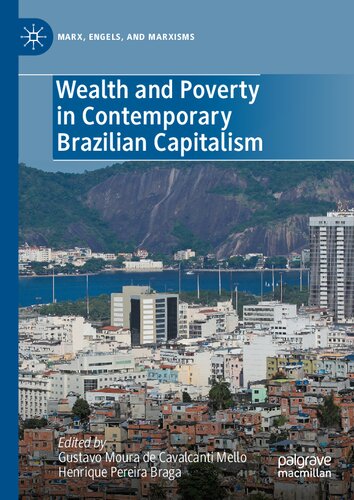

Most ebook files are in PDF format, so you can easily read them using various software such as Foxit Reader or directly on the Google Chrome browser.
Some ebook files are released by publishers in other formats such as .awz, .mobi, .epub, .fb2, etc. You may need to install specific software to read these formats on mobile/PC, such as Calibre.
Please read the tutorial at this link: https://ebookbell.com/faq
We offer FREE conversion to the popular formats you request; however, this may take some time. Therefore, right after payment, please email us, and we will try to provide the service as quickly as possible.
For some exceptional file formats or broken links (if any), please refrain from opening any disputes. Instead, email us first, and we will try to assist within a maximum of 6 hours.
EbookBell Team

5.0
88 reviewsThis book analyses contemporary capitalism from Brazil and from the Marxian critique of political economy, particularly; the co-dependency of wealth and poverty and of civilization and barbarism; the current tendency towards capital over-accumulation and the specific form assumed by the capitalist crisis in recent decades; the financialisation process of capital accumulation, its effects on the world of labour; and the place that the state assumes in this broad process. Current trends toward increasing social inequality, impoverishment of large sections of the population, precariousness of labour and rising unemployment, environmental destruction, the spread of austerity policies and the suppression of social policies, the rise of the far right (together with the strengthening of racism, misogyny, xenophobia, political and religious fanaticism and all manner of intolerance, etc.), low economic growth, the primacy of the financial dimension of capital accumulation, all need to be understood in their multiple and complex articulations, as fundamental and inherent elements of contemporary capitalism, associating empirical analysis with conceptual construction. Because they are strictly contradictory processes, a dialectical approach is required that reclaims the Marxian legacy, and aims to contribute to updating it, seeking to bring new and relevant elements to the Marxist debate, based on a specific interpretation of Marx's work, and as an immediate empirical basis the Brazilian reality.